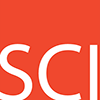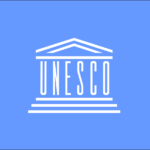Part 5: A perspective on Open Access in Germany
I am very pleased to introduce the fifth article in this series of snapshots of the progress towards open access around the globe. Authors Norbert Lossau, Birgit Schmidt and Margo Bargheer from the University of Goettingen have written a definitive summary of progress towards open access in Germany. Although Germany, with the Berlin declaration, was one of the pioneers in the move towards open access for research publications and many German universities and funding agencies have official open access policies, these OA policies have not resulted in an enforced mandate. Instead, organizations like the Federal funding agency, the DFG, and the Federal Ministry of Research and Education, have provided support for the implementation of open access in a number of interesting ways, ranging from the creation of publication funds to changes in the copyright law. The German OA activities have also been closely linked to activities supported by the European Commission. The article presents an informative and authoritative picture of the progress towards full open access to research papers, and of the complexities in its implementation.
Tony Hey
February 2014
An Update on Open Access Developments in Germany
Birgit Schmidt, Margo Bargheer, Norbert Lossau
University of Goettingen, Germany
Introduction
Ten years after the Berlin Declaration, initiated by the Max-Planck-Society, open access has become a common topic in Science Policy, for funders, universities and research organisations. An illustrative example is the recently negotiated coalition agreement between the conservative party (CDU) and social democrats (SPD) for the upcoming years (27 November 2013) that explicitly mentions the need for open access. At the institutional level, open access policies have been introduced at a number of universities and research organisations. However, mainly due to legal reasons, these policies result in no enforced mandate. The “Deutsche Forschungsgemeinschaft” (DFG) is the main research funding body in Germany and supports the implementation of open access in multiple ways. The Federal Ministry of Research and Education has intensified its activities over the last few years and has been supportive of the new copyright law. There is a vibrant open access community in Germany, collaborating in several working groups and joint events with German speaking communities in Austria and Switzerland.
A strong emphasis has been on building up supporting infrastructures and services. This includes the creation of publication funds; the enhancement of links between research information systems and repositories; and first steps in institutional support of research data management—approaches which can substantially enforce open access. New approaches are also being trialed for national licensing, and first results seem to be promising. In addition, recent changes to the German copyright legislation will secure basic rights and could be beneficial for implementing open access. Publishers have recognised the need for open access business models. Indeed, the majority don’t dispute if they should offer open access, but rather how to find a suitable way of implementing it.
Awareness of open access is generally high among researchers. Still, the percentage of uptake is on average only 20%. The main reasons have been the dominance of impact factors in furthering academic careers, in particular for young scientists, disadvantageous copyright regulations, the lack of high-quality open access journals in some disciplines and the difficulties to transform subscription-based journals into open access.
In the following we describe some relevant open access activities in Germany, closing with an outlook on initiatives and trends for the future.
Researchers’ perspective on OA
strategy in which individual researchers are reluctant to abandon the dominant publishing strategy (in closed access journals) to avoid individual reputation loss—in dilemma offers a promising starting point, for instance by offering specific incentives for early adopters.
Combining repositories and research information
In recent years, German universities and research organisations have developed a growing need to improve knowledge about their research outputs and impact. This stems from the German Excellence Initiative (which funds outstanding research projects and institutions, selected through a nation-wide competition), institutional and funders’ open access policies, international rankings of universities and, last but not least, from building up publication funds to support open access publishing. Typically it is libraries administrating such funds. In consequence, some institutions have started to rethink their information management approach and brought together various stakeholders from research support, administration and the library. Challenges include the gathering and curation of data as well as selection of impact indicators. At the same time, nearly all universities and research institutions in Germany operate open access repositories and contribute to national and European repository networks. A census of 141 German repositories provided information about the size, software used and value-added services (such as bibliographic export, usage statistics, social bookmarking, etc.); an extended update of the census is currently in preparation (Vierkant 2013). In most cases digital repositories only loosely connect to institutional information management strategies and systems. Usually only information import takes place, whereas a full two-way-flow that would offer academic incentives is still lacking.
To enable collaboration across institutions, the working group Research Information of the German Initiative of Networked Information (DINI) constituted itself in 2012. It works towards recommendations to support institutions in developing institutional strategies and setting up services compliant with international standards such as the Common European Research Information Format (CERIF). Bibliometric services—which are not yet common in German universities—address similar goals, in particular to develop a clear understanding of the current performance of institutions in terms of research outputs. To obtain reliable information both service areas have to be closely aligned; typically CRIS data form an essential data layer for bibliometric analysis.
Metrics on publication usage in repositories can be used to measure readers’ interests at the article-level and the relevance of topics present in the repository. The effort to set up such services will be comparably low for repositories, as soon as standards for counting downloads and for usage data aggregation across repositories are in place. However, so far only a few countries have succeeded in setting up sustainable services; among them is the German initiative “OA-Statistics” cooperating with a library service provider to maintain and extend the service. An interest group set up in the context of the Confederation of Open Access Repositories (COAR) will share gained experiences with the international community.
Building up publication funds
Funders and institutions in Germany generally endorse open access but do not adopt strong and forceful mandates. This is mainly due to researchers’ and other stakeholders’ reluctance towards mandatory clauses, in particular as such a clause might interfere with the German constitutional freedom of research. Therefore the most common strategy to foster open access is to offer support on various levels. In particular, the DFG has been supporting networked repositories, start-up funding for open access journals and the German information hub open-access.net. In addition, universities can apply for DFG-funds to support publishing in genuine open access journals.
More than 30 universities have set up open access publication funds with support of the DFG (75% co-funding) for article procession charges (APC) between 2010 and 2014. The DFG’s rules exclude APCs for hybrid journals and limit reimbursement to 2,000 EUR per article. So far, average costs per article vary around 1,000-1,200 EUR. Applying for these funds constitutes a challenge for institutions and their reporting systems: the application procedure requires detailed figures on publications (overall numbers, ratio of open access publications, etc.) for the year preceding the application and a projection of funds needed for the coming year. In addition, care needs to be taken for promoting the fund and setting up workflows for processing invoices. The DFG considers this program as a start-up, meaning that after a period of up to 5 years institutions have to endow the funds solely from their own resources. This raises questions such as where this budget will come from, e.g. from cancellations of journal subscriptions or from faculties which benefit most from open access funds, and how funds could be distributed fairly when demand exceeds the available resources.
Linking policies and practices
Nationally, the DFG and other research organisations, the University Rector’s Conference (HRK) and several institutions have expressed their support for open access by signing the Berlin Declaration and/or developing policies and additional activities for the implementation. The German Ministry for Education and Research has recently announced it will strengthen support for open access.
The German open access community has developed a range of tools and services—many of them with initial funding from the DFG—access.net, a certificate that sets standards and best practices for repository services (DINI Certificate), a network of open access repositories and services on top of repositories, and a collaboration of university presses. A registry of research data repositories has been recently launched. These national projects are linked to international activities through collaboration with COAR, Knowledge Exchange, OAPEN, DOAB and other initiatives.
Internationally, recent statements by research funders and organisations expressed the need for joint action to further the uptake of open access, e.g. the Global Research Council (May 2013) and the G8 Ministers for Science and Education (June 2013). The European Commission has been a driver of open access for several years, from 2008 with an open access pilot for the Seventh Framework Program and moving on to a mandate for Horizon 2020, the new framework program for research starting in 2014. Open access to publications will be obligatory to publications while a pilot for open data will be optional and only apply to selected research areas. Since 2009, the EC-co-funded initiative OpenAIRE supports the implementation of the EC’s open access policies.
German institutions are starting to develop infrastructure and services for the management of research data (e.g. research organisations, universities of Bielefeld, Berlin, Göttingen, etc.). Pilot services are often linked to large Collaborative Research Projects. Since 2007, the DFG has set incentives for such embedded data management and services sub-projects; currently there are about 20 projects which combine research management, IT and library competencies. Issues include long-term archiving, sustainability, and acceptance by the other sub-projects (Radieschen, 2013).
Open access and licensing
Open access depends on the availability of rights to make articles openly available. The majority of authors still use traditional routes of publishing in subscription journals and “open access” in repositories in many cases solely refers to articles that can be downloaded for personal use, but are not be disseminated any further. Similarly, journal subscription licenses typically do not provide any rights for further dissemination in institutional repositories.
In the framework of the Digital Information initiative of the German Alliance Initiative, a national licensing working group has been formed and has agreed on guidelines for licensing negotiations. These guidelines include an open access clause to secure that authors (or their institution on their behalf) from all authorised institutions—at no extra cost—s databases and the use of persistent author identifiers is not yet the norm. Activities of the licensing working group are now extending towards analysing gold open access options where the main challenge lies in the handling of transition processes, i.e. from subscriptions to open access models.
The international Task Force on Open Access Agreements and Licenses, initiated by COAR, further facilitates the monitoring and evaluation of practices in this area. A recently published report summarises the current clauses in use, as well as some lessons learned from organisations that have been successful in implementing open access clauses in publisher licenses (COAR 2013).
Changes in German intellectual property right
The German law on intellectual property rights has been under revision for several years now. One of the discussion points was §38 UrhG which regulates that after one year all rights to articles published in journals and magazines fall back to the authors. Until June 2013 this clause could be applied only if there wasn’t a formal publishing contract denying authors these rights. The German parliament has now decided that authors whose publications result from at least 50% publicly funded research maintain an indispensable right to disseminate the author’s version of their article, if the article has been published in a serial or journal with two or more annual issues, and its dissemination has no commercial purpose.
Not all stakeholders are convinced of the benefits of this approach. In particular, the trade organisation of German booksellers and publishers argues that disseminating authors final manuscripts through open access repositories would lead to confusion among readers. The scholarly community on the other hand is disappointed by the clause. This is largely because for authors, and their institutions, the core of indispensable rights is weakened by opaque conditions (i.e. two or more issues per year, non-commercial purpose) that cause additional effort to identify eligible articles and will lead to low numbers of available articles for the public. If the clause comes into force by January 2014, some first articles could be openly accessible by January 2015. It is likely that authors won’t touch their article again at this stage, therefore deposit in institutional repositories upfront at publication time would secure that articles become accessible right after the embargo ends. A well-integrated CRIS (Current Information System) at the institutional level, combined with incentives for researchers to use it, would pave the way for a smooth flow of metadata and full texts.
Outlook
Recently initiated activities in Germany have addressed open access publishing of books as well as new approaches to convert subscription-based to open access based licensing models. The DFG with its funding programmes continues to play a vital part to facilitate these efforts. For Germany the linking of national activities to Europe is high on the agenda with the upcoming new 7-year funding programme Horizon2020 of the European Commission (2014 onwards) that will require open access to all EC-funded publications.
One option is to use the European repository infrastructure, OpenAIRE to additionally include publications from nationally funded research, thus providing access to them and usage statistics for funders. Linking publications to research data expands the role of repositories and moves previous activities further towards a more comprehensive scientific information infrastructure. Publishers will be encouraged to provide large-scale, automated deposit of publications into repositories, deploying tools and routines provided by the European PEER project. The goal for Germany should be, in line with the strategy of the European Commission, to increase the percentage of open access publications until 2020 to at least 60%, if not higher.
References
Andrew, T. (2012): Gold Open Access: Counting the Costs, Adriadne 70, http://www.ariadne.ac.uk/issue70/andrew
Confederation of Open Access Repositories (COAR) (2013): Open Access Clauses in Publishers’ Licenses – Current State and Lessons Learned, report produced by the Open Access Agreements and Licenses Task Force, October 2013, http://www.coar-repositories.org/files/OA-Clauses-in-Publishers-Licenses.pdf
Eger, T.; Scheufen, M. and D. Meierrieks (2013): The Determinants of Open Access Publishing: Survey Evidence from Germany, submitted to the European Journal of Law and Economics, SSRN Working Paper, http://papers.ssrn.com/sol3/papers.cfm?abstract_id=2232675
RADIESCHEN (Project RADISH) (2013): Framework Conditions for an inter-discipinary research data infrastructure, final report, April 2013, doi:10.2312/RADIESCHEN_009
Vierkant, P. et al (2012): Census of Open Access Repositories in Germany, poster at Open Access Days 2012, http://nbn-resolving.de/urn:nbn:de:kobv:11-100204211
Rowlands, I.; Clark, D. and D. Nicholas (2012): PEER Usage Study – Randomised controlled trial results, June 2012, http://www.stm-assoc.org/2012_06_18_D5_3_PEER_Usage_Study_RCT.pdf
Schmidt, B. and K. Shearer: Licensing Revisited: Open Access Clauses in Practice, Liber Quarterly 22, No 3, URN:NBN:NL:UI:10-1-113939
Source: Tony Hey on eScience










